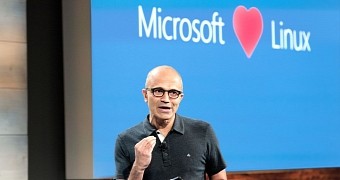Microsoft says it loves Linux on pretty much every single occasion, and in order to show everyone this is true, the company regularly announces changes that are supposed to help it get closer to the open-source world.
Today, the Redmond-based software giant revealed that it’s supporting the addition of exFAT to the Linux kernel, approximately 13 years after the file system originally launched.
exFAT, or the Extended File Allocation Table, is mostly used for flash drives and SD cards, and because it’s a proprietary Microsoft file system, using it on Linux wasn’t possible without other software and tweaks to get everything to work.
Technical specification also available
But as part of Microsoft’s strategy of getting more involved in the Linux world, the exFAT file system is offered for Linux kernel inclusion, with the company also publishing the technical specification online.
“It’s important to us that the Linux community can make use of exFAT included in the Linux kernel with confidence. To this end, we will be making Microsoft’s technical specification for exFAT publicly available to facilitate development of conformant, interoperable implementations,” John Gossman, Microsoft Distinguished Engineer & Linux Foundation Board Member, said.
“We also support the eventual inclusion of a Linux kernel with exFAT support in a future revision of the Open Invention Network’s Linux System Definition, where, once accepted, the code will benefit from the defensive patent commitments of OIN’s 3040+ members and licensees.”
Microsoft has made huge efforts to prove it’s no longer an enemy of the open-source world, and one of the most notable is the addition of Linux distros in Windows 10. With the Windows Subsystem for Linux, or WSL, it’s possible to run Linux on top of Windows 10, all without leaving the operating system.
Microsoft has worked together with key Linux companies, including Canonical, on making this happen, all under the slogan which reminds everyone that “Microsoft ♥ Linux.”

 14 DAY TRIAL //
14 DAY TRIAL //